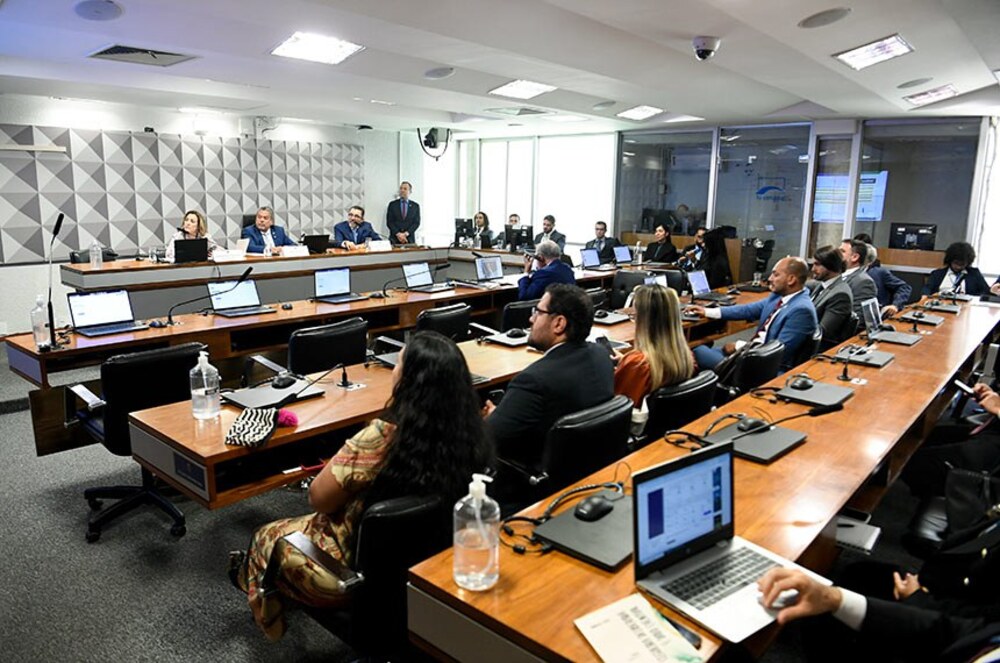CPI das Bets: Gamblers’ Mental Health is a Challenge for the SUS

Brazil – April 4, 2025 – www.zonadeazar.com In testimony before the CPI das Bets on Tuesday (1st), the president of the Brazilian Association of Psychiatry, Antônio Geraldo da Silva, stated that the SUS does not have the structure to face the challenge of gambling addiction.
He advocated for investments in the area and urged Congress to restrict or ban gambling in the country. Meanwhile, the representative of the Ministry of Health, Sônia Barros, outlined the government’s efforts to tackle the issue.
The CPI rapporteur, Senator Soraya Tronicke (Podemos-MS), said that the final report will contain “severe” proposals to curb gambling addiction.
During a public hearing at the Parliamentary Inquiry Commission on Bets (CPIBets) on Tuesday (1st), speakers pointed out that gambling addiction shares similarities with other types of addictions, whether substance-related—such as alcohol, nicotine, cocaine, heroin, and morphine—or behavioral, such as addiction to sex, food, and shopping. It follows the same chemical process that activates the brain’s reward system, which processes information related to pleasure and satisfaction. Dopamine, the hormone linked to this system, is released when a person places a bet, reinforcing compulsion, increasing excitement levels, and reducing the inhibition of risky decisions—or a combination of both.
The profile of online gamblers in Brazil is mostly composed of young men from lower social classes, which has severe consequences for society as a whole, for the gamblers, and for their families.
Recognized by the World Health Organization (WHO) as a disease, gambling addiction is classified in Brazil under ICD 10-Z72.6 (gaming and betting mania) and ICD 10-F63.0 (pathological gambling).
— “It’s a disease. People can say what they want, spread what they want, defend what they want, but it’s a disease that is spreading and harming children, teenagers, adults, the elderly, and their families. This addiction doesn’t just affect the individual; it drags entire families down to lower social classes,” stated Antônio Geraldo da Silva, president of the Brazilian Association of Psychiatry (ABP).
The psychiatrist emphasized that gambling addiction works through the same mechanisms as substance addiction. It is driven by the development of craving—an uncontrollable urge to gamble and bet. According to Antônio Geraldo, a person will do anything to fulfill this urge.
— “I’ve had patients who lost, for example, R$500,000 in a single night of poker and had to mortgage their apartment to pay the debt. And in electronic games, we see this daily—people betting and giving away everything they can and cannot afford. Some patients no longer have access to credit cards because they have maxed out every possible financial resource. Worse still, some people believe in lending their credit cards to others,” he said.
The president of the ABP cited a study by the Locomotiva Institute, which identified the main reasons why people gamble. He stressed that none of these reasons justify engaging in betting, as they lead to increasing addiction, debt, and personal, family, and social losses.
— “Fifty-three percent gamble to make money. And I repeat: no one beats the bets. There is no chance of getting rich through bets. The betting companies always win. The illusion of ‘breaking the bank’ does not exist. Twenty-two percent gamble for fun, leisure, and entertainment; 10% for excitement and adrenaline; 7% to pass the time; 6% out of curiosity; and 2% to relieve stress.”
Depressive Disorders
In response to Senator Soraya Thronicke (Podemos-MS), who asked whether there was a significant link between pathological gambling and disorders such as depression, anxiety, and bipolarity, the president of the ABP confirmed a greater predisposition in such cases.
— “People with a tendency to develop depression, anxiety disorders, or other psychiatric conditions are more likely to experience worsened symptoms due to gambling. This doesn’t only affect gamblers but also their families.”
Considering the influence of aggressive advertising and social media in spreading gambling addiction, especially among young and vulnerable populations, Senator Izalci Lucas (PL-DF) questioned the ABP’s stance on the need for specific regulations to limit such campaigns.
— “We consider this urgent—extremely urgent. We cite the example of tobacco control. The more restrictions we impose, the better the results. We need to urgently address this issue because it cannot remain as unregulated as it currently is. More and more people are becoming addicted, with no access to treatment. We are simply adding new cases to those already suffering,” said Antônio Geraldo da Silva.
Cultural Practice
Sônia Maria Barros, Director of the Department of Mental Health at the Ministry of Health, highlighted that gambling has been a common cultural practice in Brazil since colonial times, even after its prohibition in 1941. She noted that although gambling itself is not a new phenomenon, online betting in the modern internet era has introduced new challenges, particularly when real money or assets are at stake in uncertain future events.
Sônia pointed out that since December 2023, more than 30 regulations have been issued regarding electronic gambling, including a directive establishing responsible gambling guidelines and regulating communication, advertising, and marketing related to fixed-odds betting.
— “The idea seems to be to promote socially responsible economic exploitation of betting while preventing and mitigating the associated risks, such as mental health issues. The process of approving, regulating, and establishing these guidelines is crucial for the healthcare sector, as it helps address the consequences of gambling addiction,” she stated.
The Ministry of Health director also highlighted the creation of the Interministerial Working Group on Mental Health and Problem Gambling Prevention and Harm Reduction. This group aims to plan preventive actions, harm reduction strategies, and support services for individuals and social groups affected by problematic gambling behavior.
— “The first meeting of this interministerial group took place recently, on March 10, with the goal of presenting an action plan that integrates different work fronts among the participants to advance responses to the issue of gambling addiction.”
Source: Agência Senado